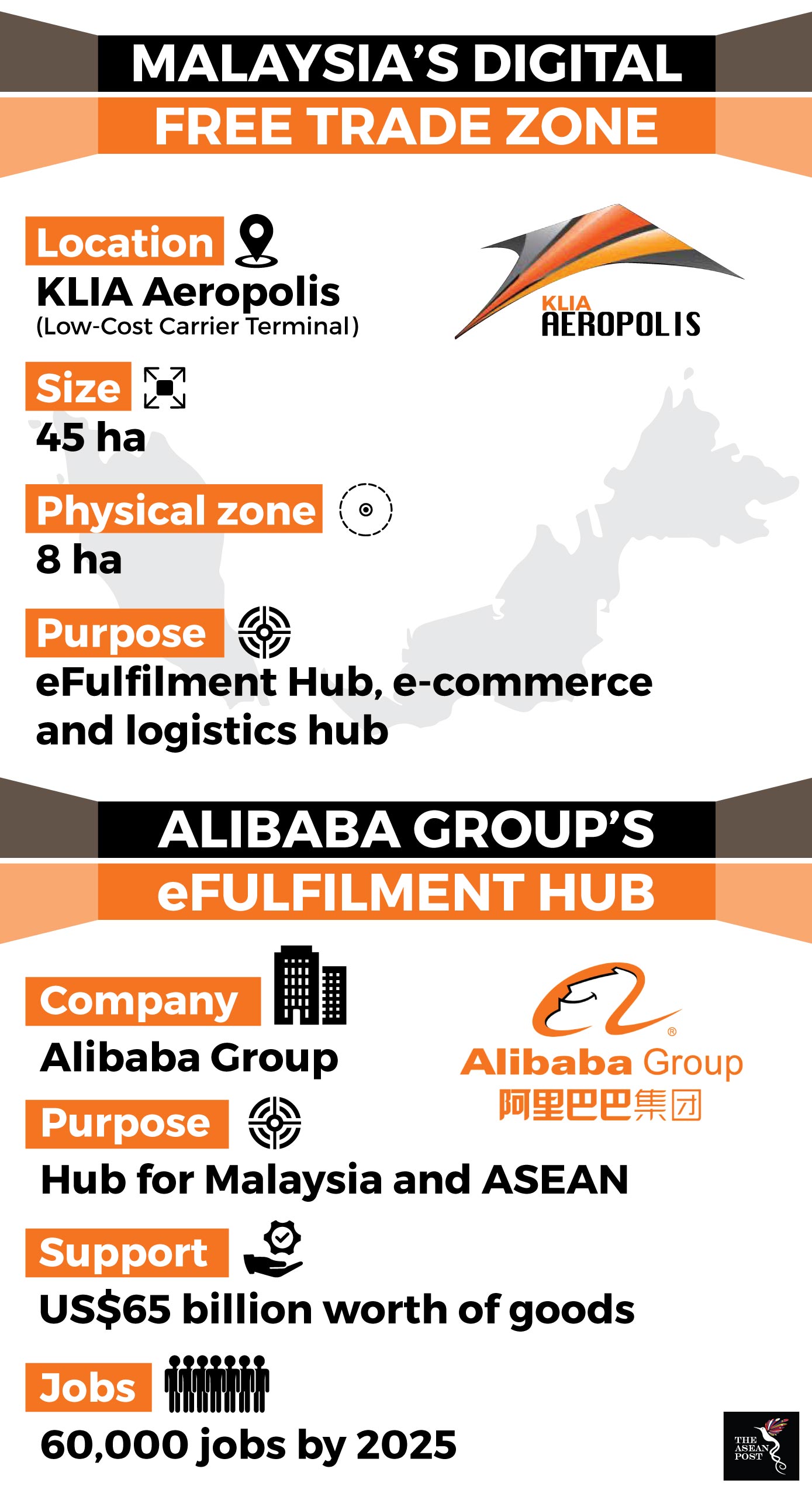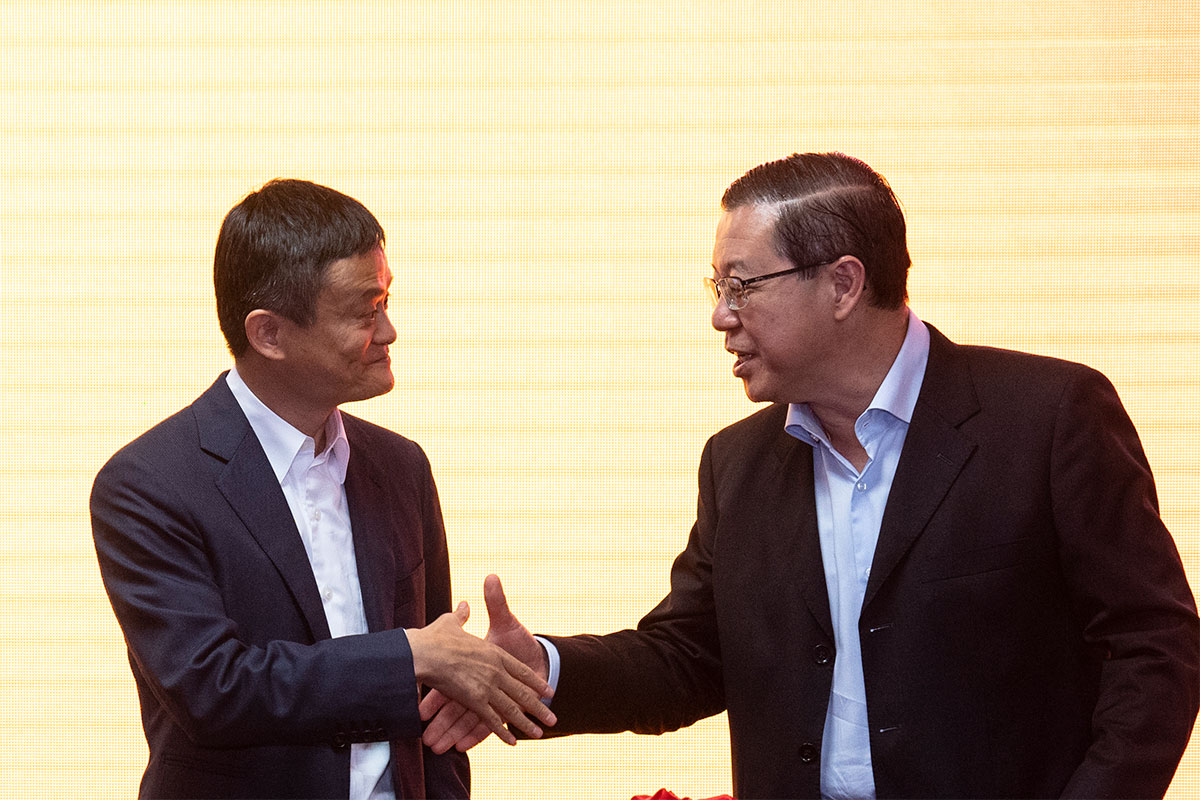On 18 June 2018, the founder of e-commerce conglomerate Alibaba, Jack Ma launched the company’s office in Kuala Lumpur. The office is Alibaba’s first in Southeast Asia and will be the first Electronic World Trade Platform (eWTP) hub outside of China. The eWTP is a concept coined by Jack Ma which involves the creation of digital free-trade zones where small and medium-sized enterprises (SMEs) can easily plug into global trade via e-commerce. According to Jack Ma, the office will be “…serving as a 'one-stop solution centre' for local businesses, and is designed to engage with existing local partners, help Malaysian businesses identify global cross-border trade opportunities, as well as to support the country's technology innovations through cloud computing services," it said.
The launch of the Kuala Lumpur office is the culmination of Jack Ma’s long relationship with Malaysia. In his speech at the launch, Jack Ma revealed that his relationship with Malaysia existed even before his collaboration with former Prime Minister Najib Razak last year, stretching back 20 years ago. Jack Ma told attendees at the launch that it was Prime Minister Mahathir Mohamad’s Multimedia Super Corridor (MSC) project that first inspired him to start Alibaba.
A positive for both sides
The opening of Alibaba’s Kuala Lumpur office is part of an agreement made last year with the Malaysian government. Wanting to establish Malaysia as a regional digital hub, Najib Razak launched the Digital Free Trade Zone (DFTZ) Park in Kuala Lumpur. The collaboration between the Malaysian Digital Economy Corporation (MDEC) and the Alibaba Group hopes to see the DFTZ become a regional warehouse and logistics hub where goods and services sold via e-commerce would flow through from the region to the rest of the world. The office launched in Bangsar South, Kuala Lumpur officially affirms Alibaba’s foothold in the country.
Alibaba’s move can be seen as strategic as it further entrenches itself in Southeast Asia as the region’s e-commerce market is expected to grow rapidly in the coming years.

Source: Various sources
The past few years has seen the e-commerce race intensifying with the entrance of global players such as Amazon. Aside from that, Google recently made moves to enter the market by way of Alibaba’s largest competitor in China, JD.com. By establishing a logistics hub in Malaysia, Alibaba now has a geographical advantage over its competitors. The DFTZ will be the company’s gateway to access the rest of the region. Alibaba also owns Lazada, the largest e-commerce website in the region.
For Malaysia, the launch of the Alibaba office can be seen as a boon for the country. Malaysia just went through a general election which saw the surprise defeat of the National Front (Barisan Nasional) party which was in power for 60 years. Upon taking power, newly elected Prime Minister Mahathir Mohamad announced that he would review the many mega-projects that are slated to take place in Malaysia, many of them involving Chinese companies.
The launch which was also attended by Bai Tian, the Chinese ambassador to Malaysia, was a much-needed public relations exercise to assure Chinese investors. Prior to the launch, Jack Ma met with Mahathir Mohamad and assured him that China’s relationship with Malaysia would not be harmed. Bai Tian also mentioned that three Chinese companies invested US$300 million in Malaysia just weeks after the 9 May polls.
This reassurance is essential as the country is still recovering from the effects of the 1MDB scandal that former Prime Minister Najib Razak is associated with. The Malaysian government has revealed that the scandal has saddled the country with enormous debt. The combination of Mahathir Mohamad’s comments on reviewing mega projects and the revelation of the debt has seen a sell-off of Malaysian stocks. Jack Ma and Bai Tian’s statements are crucial as they restore investor confidence in the country.
The development of the DFTZ is also just as important. The DFTZ is expected to boost growth in the nation’s e-commerce sector and increase its contribution to Malaysia’s gross domestic product (GDP) to US$55 billion by 2020, which could help in offsetting the country’s debt.
Jack Ma’s appearance in Malaysia couldn’t have come at a better time, for both Alibaba and Malaysia. “I am very confident in Malaysia, I am very confident in China, I am very confident in Malaysia and China’s relationship, and I am confident in the China business community that comes to Malaysia to invest,” he concluded.
